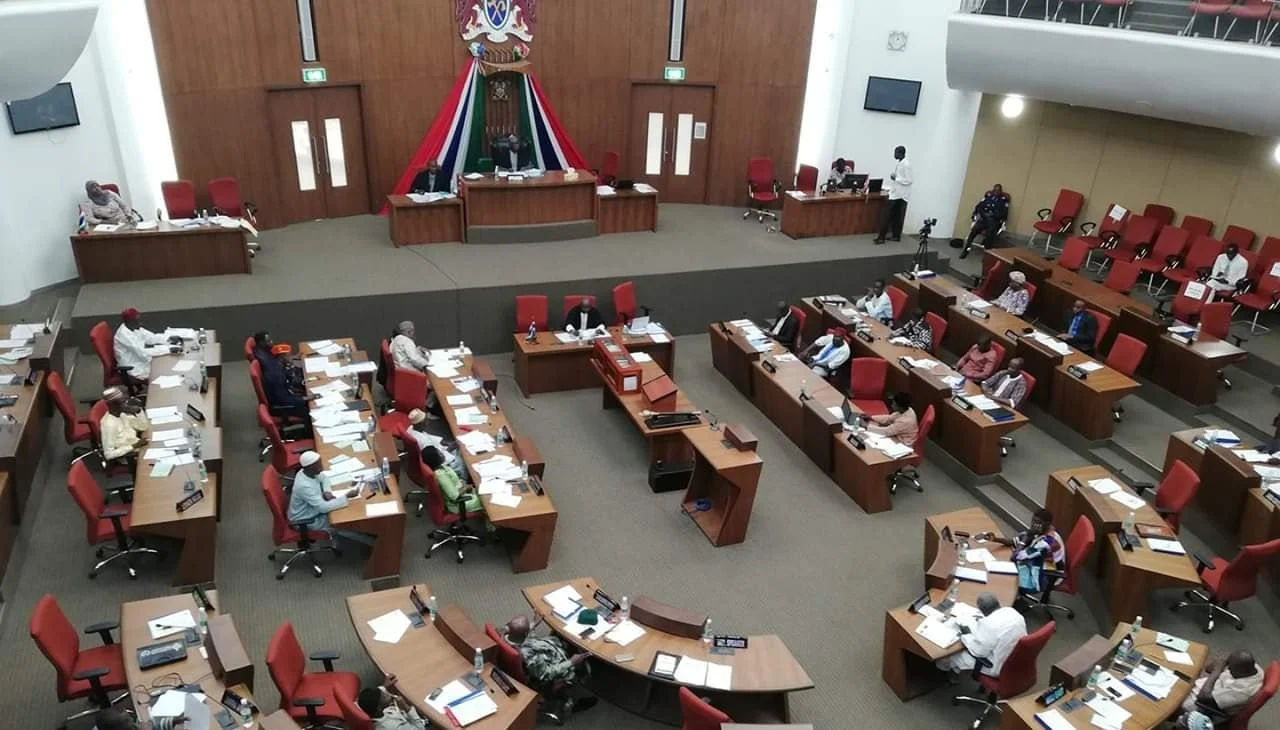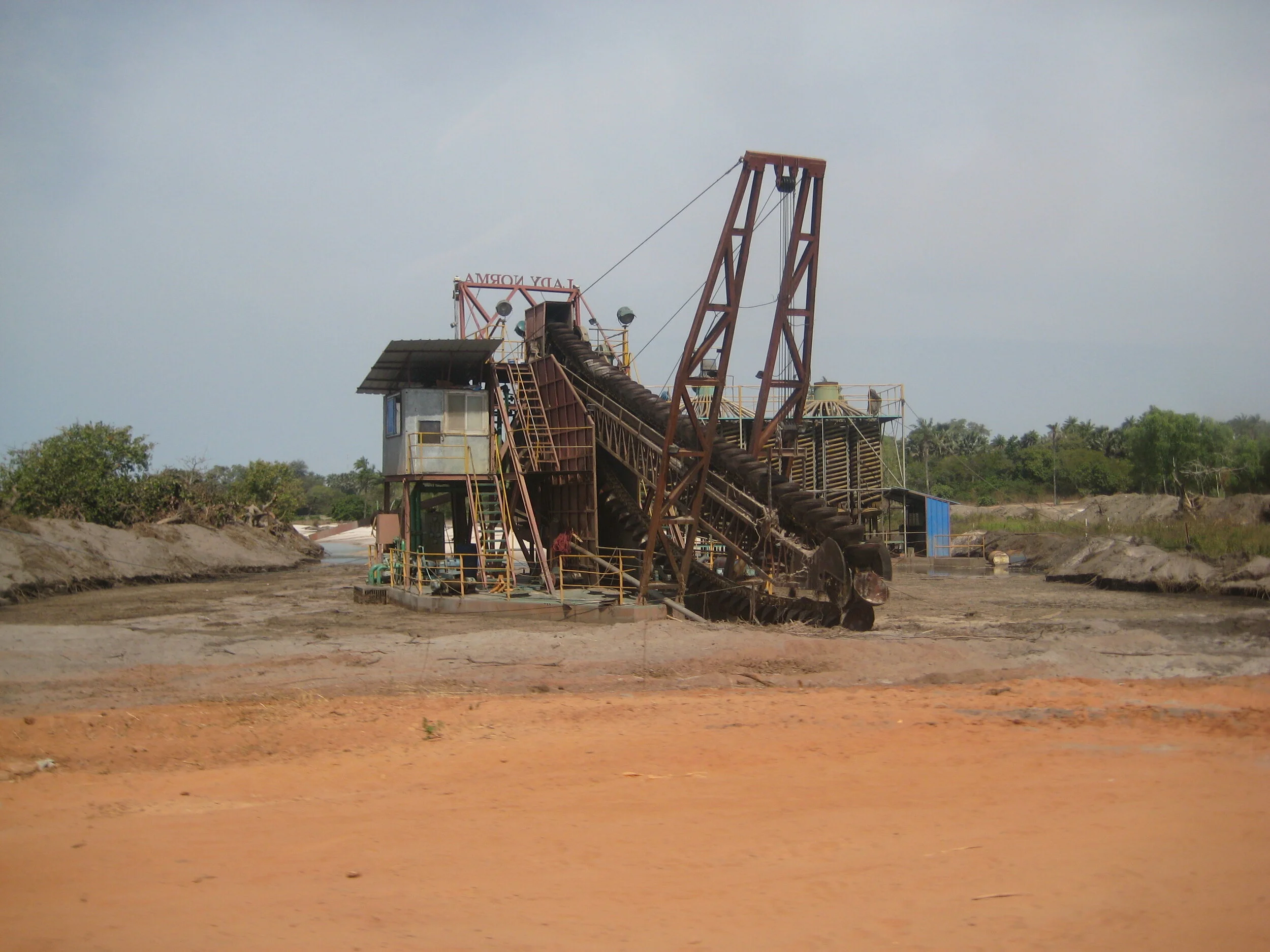It took two mental health advocates to raise the sorry situation of mentally-ill persons in The Gambia at the continental and global stages. In 2001, Ms. H. Purohit and Mr. P. Moore filed a Communication at the African Commission on Human and People’s Rights (the Commission) against the Republic of The Gambia on behalf of “patients detained at Campama, a Psychiatric Unit of the Royal Victoria Hospital, and existing and ‘future’ mental health patients detained under the Mental Health Acts of the Republic of The Gambia”[1]. The complainants made the following allegations against The Gambia:
a. The governing mental health law in the Gambia was obsolete
b. There is no definition of “lunatic” in the Lunatics Detention Act and no provisions and requirements establishing safeguards during the diagnosis, certification and detention of the patient
c. Overcrowding in Campana
d. No consent to treatment or subsequent review of continued treatment.
e. no independent examination of administration, management and living conditions within the Unit itself
f. patients detained in the psychiatric unit are not even allowed to vote.
g. no provision for legal aid.
h. provision for a patient to seek compensation if his/her rights have been violated.
On admissibility of the Communication, meaning whether the complainants had exhausted local remedies as condition for presentation of a complaint, The Gambia concedes that;
the Lunatics Detention Act does not contain any provisions for the review or appeal against an order of detention or any remedy for detention made in error or wrong diagnosis or treatment. Neither do the patients have the legal right to challenge the two separate Medical Certificates, which constitute the legal basis of their detention[2]
The Gambia submitted that the vulnerable groups have recourse to constitutional protection pursuant to section 7(d) of the 1997 Constitution of The Gambia. Also, it contended that the complainants could have sought tortious remedies for wrongful diagnosis. The Gambia promised amendment of the Lunatics Detention Act as it was imperfect.
in 2003,tThe Commission found The Gambia to be in violation of Articles 2 (non-discrimination) , 3 (equality before the law and equal protection), 5 (respect of the dignity and no cruel or inhuman treatment), 7 (1)(a) (right to appeal) and (c) (right to defense and representation), 16 (enjoyment of best state of physical and mental health) and 18(4) (special measure of protection for the aged and disabled) of the African Charter. The findings against The Gambia were as laudable as the recommendations of the Commission. The Gambia was strongly urged to:
a. as soon as possible, repeal the Lunatics Detention Act and replace with a new legislation for mental health in The Gambia.
b. create expert body to review cases of persons detained under Lunatics Detention Act.
c. Provide adequate medical and material care for persons suffering from mental health problems in the Gambia.
Enforcement of the Decision and Outcomes:
There is no report from The Gambia about the implementation of the recommendations as requested by the Commission. The government of The Gambia was requested to “report back to the African Commission when it submits its next periodic report in terms of Article 62 of the African Charter on measures taken to comply with the recommendations and directions of the African Commission in this decision”.
The Next Periodic Report, and in fact the only Periodic Report after the Purohit decision, was the Combined Report on the African Charter on Human on Peoples’ Rights for the Period 1994 and 2018 and Initial Report under the Protocol to the African Charter on the Rights of Women in Africa (1994-2018). Surprisingly, there was no specific information on the implementation of the foregoing three recommendations of the Commission. The Lunatics Detention Act is still the extant law in The Gambia on mental health and no report or data is available on the creation of the review body and on its proceedings and recommendations on the cases of persons detained under the Lunatics Detention Act. Although the Campama Unit was closed and a better and more spacious detention facility was opened at Salagi Called Tanka Tanka, more mentally-ill persons are seen on the street more frequently now than before.
Seventeen years and counting, The Gambia has failed to implement the key recommendation of the African Commission. The Lunatics Detention Act which was enacted in 1917 and last amended in 1964 is not repealed or amended to capture the concerns of the Commission and the changed circumstances in the country. Equally, the draft Mental Health Bill as recommended by the Commission is on hiatus at the National Assembly.
The procedure in case of the lunacy or other incapacity of an accused person is still regulated by the Criminal Procedure Code and the Lunatics Detention Act. The appearance, bail and detention of an Accused Person who is of unsound mind and incapable of making his or her defense rest with the trial court and the minister responsible for health.
In 2012, the Summary Report of the WHO Country Office on Mental Health in The Gambia attributed the poor situation of mental health in The Gambia to;
mental health services are very limited in the Gambia; there are significant gaps in capacity, human resources, materials, medication and outreach services, most of which stem from very limited budget allocation (about 0.5% of the national health budget is spent on mental health services).[3]
Is the 2012 situation of mental health in The Gambia different from the current situation?
Would Purohit and Moore be glad with the no-progress report about the reform of mental health law and situation in The Gambia?
An anatomy of the National Health Policy 2012 – 2020 provides a measure of lack of progress for mental health in The Gambia. The Policy ends this year and its objective of improving access to quality mental health care for all Gambians is far from achieved. The formulated policy measures such as implementing the Mental Health Policy and Strategy; strengthening the capacity for the diagnosis, Management, prevention and control of mental and neurogical disorder; providing quality, equitable and affordable mental health services; revise the Lunatics Detention Act; and develop Mental Health Bill, have not happened as planned. These measures which were basically uplifted from the moribund Gambia Mental Health Strategic Plan 2007 – 2012 are either not fully implemented or not implemented at all. For example, Strategy 7 was to “strengthen community involvement and participation in mental health care delivery” through, among other activities, the creation of “local associations of psychological rehabilitations involving formal health care providers, community leaders and traditional healers within each health division”. Until today, this strategic activity did not happen. There are no in-patient mental health units to “accommodate twelve patients” in all the hospitals and major health centers in the country. Families arrange for transport and bear the cost of ferrying their mentally-ill persons to Polyclinic in Banjul or to Tanka Tanka Psychiatric Unit.
Consequently, what the Purohit Decision exposed about mental health in The Gambia and what research showed is the existing moribund and obsolete legislations and policies. The Lunatics Detention Act of 1917 and the Criminal Procedure Code 1935 have outlived their efficacy and usefulness to the management and trial of mentally ill persons. The Draft Mental Health Bill is comatose at the National Assembly without any chance of being revived soonest. The National Mental Health Policy of 2007 is outdated and the Mental Health Strategic Plan 2007 – 2012 has phased out with nothing much to ride home about.
Until seriousness, more budgetary allocation and specialized trainings are provided to the Mental health sector of the health system of the Gambia, over 118, 000[4] persons with mental health problems will continue to suffer and be discriminated.
About the Author:
Simon Sabally is a Gambian living and studying outside of The Gambia. He writes on law and constitutional matters, especially on the Constitution of The Gambia, 1997.
[1] Purohit and Moore v. The Gambia, African Commission on Human and Peoples' Rights, Comm. No. 241/2001 (2003)
[2] Ibid. para.27
[3] Point Newspaper, “Mental Health in The Gambia, Sep. 25, 2012
[4] Sanneh, Amie, “Over A Hundred Thousand Gambians Suffer From Mental Health Problems” Foroyaa Newspaper, Aug. 28, 2018.









